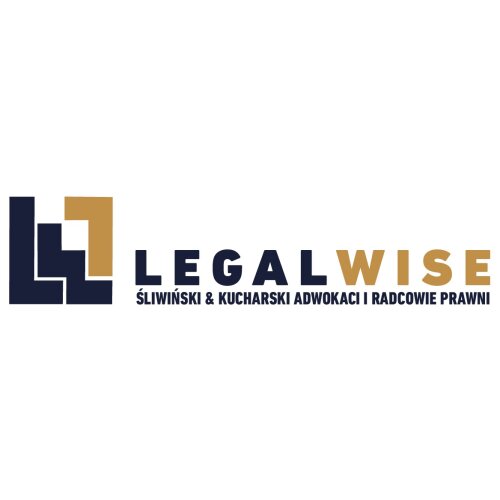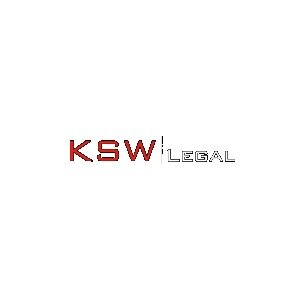Best ESG Advisory & Compliance Lawyers in Poland
Share your needs with us, get contacted by law firms.
Free. Takes 2 min.
Or refine your search by selecting a city:
List of the best lawyers in Poland
About ESG Advisory & Compliance Law in Poland
ESG Advisory & Compliance law in Poland refers to the legal and regulatory framework related to environmental, social, and governance (ESG) factors. This area of law is rapidly evolving due to increased attention to sustainable business practices and corporate responsibility. In Poland, ESG regulations are shaped by local legislation as well as EU directives and regulations. Companies operating in Poland must comply with a range of laws addressing sustainability, transparency, environmental protection, labor standards, anti-corruption, and ethical governance. Proper ESG compliance is increasingly essential not only for legal conformity but also for maintaining investor trust and market reputation.
Why You May Need a Lawyer
Seeking legal advice in the field of ESG Advisory & Compliance can be essential for organizations and individuals for several reasons. Navigating the complex network of local and EU laws can be difficult without specialized expertise. Common situations where you may require a lawyer include:
- Understanding new or existing ESG reporting obligations
- Developing comprehensive ESG strategies and policies for your business
- Ensuring your company is compliant with Polish and EU ESG requirements
- Preparation and verification of non-financial (sustainability) reports
- Due diligence in mergers and acquisitions with ESG risk assessment
- Managing stakeholder expectations related to ESG performance
- Addressing claims or disputes regarding ESG violations
- Implementation of effective whistleblowing channels and anti-corruption measures
- Dealing with government inspections or investigations related to ESG matters
- Training employees on ESG legal requirements and best practices
Local Laws Overview
Poland's ESG legal landscape is shaped by a combination of national regulations and European Union directives. The most relevant legal aspects include:
- Disclosure Duties - Larger companies are required to disclose non-financial information, including their impact on the environment, social responsibility, and governance structures, following the Non-Financial Reporting Directive (NFRD) and, soon, the Corporate Sustainability Reporting Directive (CSRD).
- Environmental Regulations - Polish companies must comply with waste management, water protection, air quality, and emissions trading requirements, many of which stem from EU legislation such as the Green Deal and the Taxonomy Regulation.
- Social Aspects - Labor laws, anti-discrimination measures, human rights due diligence, and worker safety are rigorously regulated under the Polish Labor Code and related regulations.
- Governance Standards - Companies are expected to adhere to good governance practices, which include anti-corruption protocols, transparent reporting, ethical supply chain management, and stakeholder engagement.
- Sector-Specific Guidelines - Some industries face additional regulations, such as the financial sector's ESG risk management requirements under EU sustainable finance and taxonomy frameworks.
- Sanctions for Non-Compliance - Failure to comply with ESG-related obligations can result in administrative penalties, reputational damage, civil liability, or even criminal sanctions for severe violations.
Frequently Asked Questions
What is ESG Advisory & Compliance?
ESG Advisory & Compliance refers to the guidance and processes that help organizations meet environmental, social, and governance requirements set by law or expected by stakeholders.
Are ESG regulations in Poland mandatory or voluntary?
Some ESG disclosures and actions are mandatory, especially for larger companies and those in certain sectors. Others may be voluntary but strongly encouraged to meet market, investor, or stakeholder expectations.
What types of organizations are affected by ESG requirements in Poland?
Publicly listed companies, large enterprises, financial institutions, and certain entities meeting thresholds established by law must comply with ESG regulations. Smaller organizations may have partial or voluntary obligations.
Which EU rules impact ESG compliance in Poland?
Key EU rules include the Non-Financial Reporting Directive (NFRD), the Corporate Sustainability Reporting Directive (CSRD), the Sustainable Finance Disclosure Regulation (SFDR), and the Taxonomy Regulation.
What are the penalties for failing to comply with ESG requirements?
Penalties include administrative fines, orders to correct deficient practices, removal from public procurement lists, and increased exposure to civil lawsuits or reputational harm.
What does an ESG audit involve?
An ESG audit assesses how well a company meets legal and ethical standards on environmental protection, social responsibility, and governance. It typically reviews policies, processes, reporting, and implementation.
How often must companies report ESG data in Poland?
Reporting frequency depends on the company size and sector, but most large companies must submit annual non-financial statements or sustainability reports.
How can a lawyer assist with ESG compliance?
A lawyer provides guidance on current regulations, reviews company policies, assists in preparing required reports, represents clients in proceedings, and helps develop ESG strategies that align with legal obligations.
What is the role of the Polish Financial Supervision Authority (KNF) in ESG?
The KNF oversees financial institutions’ compliance with sustainable finance and disclosure rules, including ESG risk management and reporting obligations for banks, insurers, and investment entities.
Is ESG compliance only for large companies?
While many ESG obligations focus on large companies, small and medium enterprises are increasingly expected to align with ESG principles, especially if they work with larger firms or seek investment.
Additional Resources
- Polish Financial Supervision Authority (KNF) - supervises compliance in the financial sector
- Ministry of Climate and Environment - provides policies and guidance on environmental regulations
- Polish Ministry of Family and Social Policy - oversees social aspects such as labor rights and workplace safety
- Office of Competition and Consumer Protection (UOKiK) - addresses governance issues like corruption and consumer rights
- Association of Listed Companies (SEG) - offers resources and best practices for companies listed on the Warsaw Stock Exchange
- European ESG Template (EET) - EU-level resource for standardized ESG disclosures
- Local law firms specializing in ESG, corporate governance, and sustainability compliance
Next Steps
If you need legal assistance in ESG Advisory & Compliance, consider the following steps:
- Identify your company's current ESG obligations by reviewing applicable Polish and EU laws
- Collect your organization's internal policies, previous reports, and compliance documentation
- Contact a qualified lawyer or law firm specializing in ESG or corporate compliance
- Request a preliminary consultation to discuss your specific needs and risks
- Work with your legal advisor to develop or update your ESG strategy and reporting processes
- Stay informed about changes in local and EU ESG regulations that may affect your business
- Invest in regular ESG training for management and employees to ensure ongoing compliance
Early engagement with experienced legal counsel can help you avoid potential pitfalls, respond proactively to regulatory changes, and ensure your organization meets all relevant ESG requirements in Poland.
Lawzana helps you find the best lawyers and law firms in Poland through a curated and pre-screened list of qualified legal professionals. Our platform offers rankings and detailed profiles of attorneys and law firms, allowing you to compare based on practice areas, including ESG Advisory & Compliance, experience, and client feedback.
Each profile includes a description of the firm's areas of practice, client reviews, team members and partners, year of establishment, spoken languages, office locations, contact information, social media presence, and any published articles or resources. Most firms on our platform speak English and are experienced in both local and international legal matters.
Get a quote from top-rated law firms in Poland — quickly, securely, and without unnecessary hassle.
Disclaimer:
The information provided on this page is for general informational purposes only and does not constitute legal advice. While we strive to ensure the accuracy and relevance of the content, legal information may change over time, and interpretations of the law can vary. You should always consult with a qualified legal professional for advice specific to your situation.
We disclaim all liability for actions taken or not taken based on the content of this page. If you believe any information is incorrect or outdated, please contact us, and we will review and update it where appropriate.
Browse esg advisory & compliance law firms by city in Poland
Refine your search by selecting a city.

















